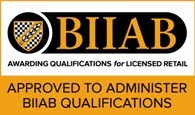Title – Next time buy a ticket! – The ticket collector who throttled a passenger
Source – London Lite
Date – 3rd October 2006
“This is the moment an inspector throttles a suspected fare dodger. The official put both his hands round the man’s throat while a colleague helps pin him to the ground by holding down his arms, legs and body”
Not words you will hear from one of our instructors, but rather the headlines from the evening standard. Immediately the reader sees the inspector as the one in the wrong and the fare dodger as the victim. From the inspectors point of view they are doing their job and controlling and catching those that choose to break the rules. Who is right and who is wrong? In this case, no doubt, a court will decide.
Clearly 'throttling' is no longer an acceptable restraint technique, not only does the victim have the right to fear for their life and therefore is more likely to fight back with additional force and aggression, but as a technique it can lead to serious injury. We actively advise against all such actions and as part of our Physical Intervention training (PI) we demonstrate techniques where the same restraint can be achieved without the need to use excessive strength or force.
With the correct training, two inspectors could restrain an individual if the situation required it without making these headlines. But more importantly with our Conflict Management and Resolution training (CMR) we examine ways of avoiding conflict in the first place and communicating effectively so that any kind of physical intervention is a last resort and appropriate to the circumstances, not to mention within the law.
Source – London Lite
Date – 3rd October 2006
“This is the moment an inspector throttles a suspected fare dodger. The official put both his hands round the man’s throat while a colleague helps pin him to the ground by holding down his arms, legs and body”
Not words you will hear from one of our instructors, but rather the headlines from the evening standard. Immediately the reader sees the inspector as the one in the wrong and the fare dodger as the victim. From the inspectors point of view they are doing their job and controlling and catching those that choose to break the rules. Who is right and who is wrong? In this case, no doubt, a court will decide.
Clearly 'throttling' is no longer an acceptable restraint technique, not only does the victim have the right to fear for their life and therefore is more likely to fight back with additional force and aggression, but as a technique it can lead to serious injury. We actively advise against all such actions and as part of our Physical Intervention training (PI) we demonstrate techniques where the same restraint can be achieved without the need to use excessive strength or force.
With the correct training, two inspectors could restrain an individual if the situation required it without making these headlines. But more importantly with our Conflict Management and Resolution training (CMR) we examine ways of avoiding conflict in the first place and communicating effectively so that any kind of physical intervention is a last resort and appropriate to the circumstances, not to mention within the law.
Business managers know the effect headlines like these can have on their operation. But even if it doesn’t make the headlines, physical intervention, what ever the circumstance, always leaves a negative impression on other customers. They only ever see a two dimensional picture of the situation that is occurring and will not comprehend what has led to it in the first place. With the appropriate training we can help your staff to approach situations in a more professional and effective manner. This approach promotes your business rather than harming it.
Please visit our website at www.btbl.co.uk




